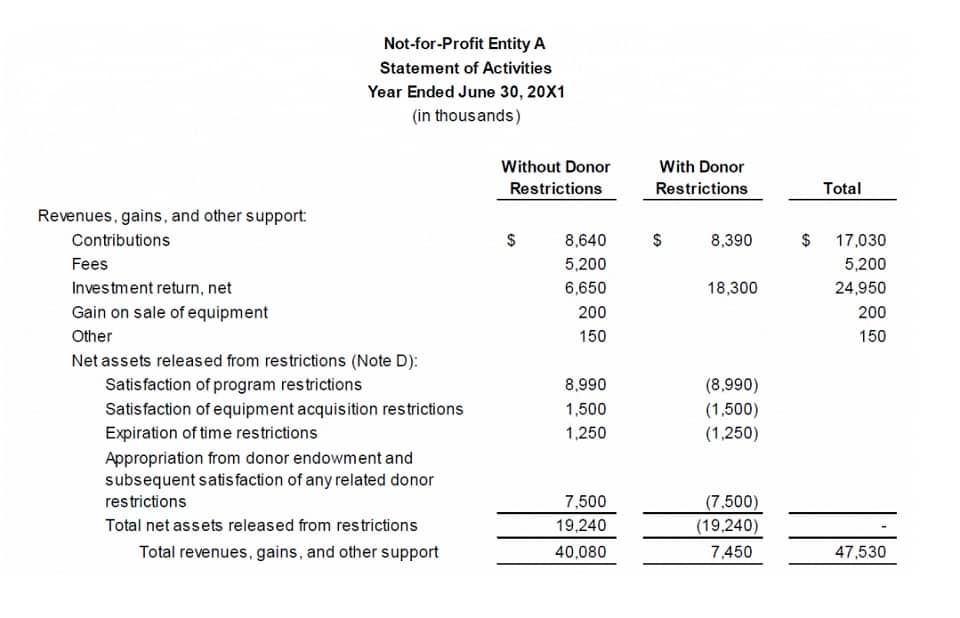Accounting for Small Businesses: A Comprehensive Guide to Financial Management
Your general ledger is organized into different accounts in which you record different types of transactions. Bear in mind that, in the world of bookkeeping, an account doesn’t refer to an individual bank account. Instead, an account is a record of all financial transactions of a certain type. If you’re searching for accounting software that’s user-friendly, full of smart features, and scales with your business, QuickBooks is a great option. It requires you to record each financial transaction just once in your overall bookkeeping record. Similarly, live casino bonuses provide a unique way for players to engage with live casino games, offering incentives like free spins, cashback, and deposit matches. These bonuses are designed to enhance the gaming experience by providing players with more opportunities to play and win without requiring additional deposits. Just as QuickBooks simplifies financial tracking, live casino bonuses simplify the process of maximizing value for players, ensuring they get the most out of their time at the casino.
Compare the best bookkeeping software for small businesses
- Accounts receivable (AR) is the money your customers owe you for products or services they bought but have not yet paid for.
- Features include client management, multilingual and recurring invoicing, expense and mileage tracking, and reports.
- If you’re using accounting software, financial reports might be automatically generated.
- By working with a bookkeeper, you can spend more time adding value to your business and make decisions faster.
- A financial expert can give advice specific to your unique business and give you a more in-depth look at basic bookkeeping principles.
By working with a bookkeeper, you can spend more time adding value to your business and make decisions faster. If you want your business to save time and money, then you should consider hiring a bookkeeping service. A bookkeeping service can help you stay organized and on top of your finances. For additional features, these were elements that fell into the “nice-to-have” category that not all software providers offered, either as part of their regular plan or as a paid add-on.
Decimal: Best for project-based businesses

If you choose to use double-entry bookkeeping—and we strongly suggest you do! We’ll show you examples of how to record a transaction as both a credit and debit later on. If you’re a busy small business owner with a million things to do, it’s easy to let bookkeeping fall by the wayside. Getting your books together and producing financial statements is the only way to gauge the financial health of your small business. Generally, if your assets are greater than your liabilities, your business is financially stable.
What skills does a bookkeeper need?

That’s why using software is such a great idea – it can automate and streamline your bookkeeping tasks. Create smart rules with Synder that’ll follow the if-then chain of events. Putting it in context, if a Shopify fee arrives in my accounting system then Synder should categorize it as a fee expense.

The best bookkeeping software for small businesses
- Patriot Software Accounting is best for uncomplicated small businesses that probably won’t outgrow it.
- Christine Aebischer is an assistant assigning editor on the small-business team at NerdWallet who has covered business and personal finance for nearly a decade.
- You record a single entry in a journal or spreadsheet in the same manner used to record a check-in your checkbook.
- If you’re a small-business owner, you’re probably used to doing everything yourself.
- Bookkeeper360 integrates with third-party tools, such as Bill, Gusto, Stripe, Shopify, Xero, Brex, Square, Divvy and ADP.
- We’ll cover some of the best business bookkeeping software options a little later.
When it comes to the bookkeeping basics, one of the biggest drawbacks of such programs is that you need to enter your data manually, which takes time and bears a high risk of errors. For recording transactions, spreadsheet software can be as time-consuming as paper accounting. https://www.bookstime.com/ However, the clear advantage over paper accounting is the option of making some simple financial calculations and the ability to share them with accounting professionals. If you’re using a single entry method, you record your income and expenses in a cash register.
Once you’ve landed on the custom reports you need, you can view, print or export them using Excel, email, pdf format, text or html format. In addition, AccountEdge offers a free account for your accountant so they always have real-time access to your reports. For example, when trying to find which menu option allowed me to manage my invoices, I assumed this feature would be found under the “accounting” top menu.
- Answer some questions about your small business and we’ll pair you with customized software options.
- This type of account is designed for everyday use and allows businesses to make unlimited deposits and withdrawals.
- This streamlined process allowed me to address all requirements directly from the invoice screen, providing clear guidance on what was needed to fully complete the task.
- By being proactive with your bookkeeping, you’ll save your small business time when it comes to taxes.
Best for document management
The software is also a good fit for service-based businesses, such as consultants, web designers and photographers. I then clicked on the “accounting” menu item and was taken to the accounting and bookkeeping for small business accounting page. An explanation told me that doing so would allow me to automatically import transactions into FreshBooks, then match them with income and expenses in FreshBooks.
Creating Reports to Improve the Business
Its user-friendly dashboard, low learning curve, and easy expense tracking make it ideal for freelancers and small-business owners who don’t mind finding another app to manage inventory. It’s also a lot more comprehensive than most other free cloud-accounting software options. Sage Business Cloud Accounting’s cheapest plan lets you create invoices, track amounts owed, and automatically reconcile your bank accounts. If you’re willing to pay a bit more ($25 a month), Sage Accounting adds unlimited users, quotes, estimates, cash flow forecasting, and purchase invoice management. FreshBooks has a 4.5 rating on Capterra with 4,379 reviews and a 4.5-star rating on G2 with 688 reviews. Users say it is extremely easy to use and has all the basic features needed to manage small business accounting needs.
You need to know how much money you have
If you add personal loans, insurance, and credit cards to the mix, it becomes very hard to tease out your personal life financials from your business ones. Now that we have the accounting basics covered, let’s look at the next step – opening up a business bank account. The first and one of the most important elements of running a small business is setting up a business bank account. Lastly, users can set up recurring transactions with preset amounts and a designated timeline — from there, they can schedule payment reminders. The specific amount you charge your clients for bookkeeping services will depend on your certifications, years of experience and familiarity with the client’s business.